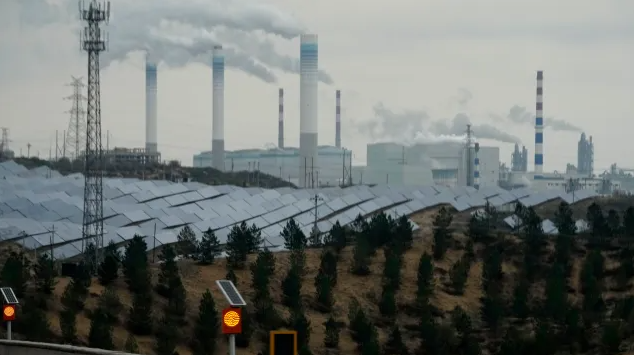
After years of misguided energy policies, Europe’s electricity has become so expensive that trade unions have started warning of the threat of deindustrialization. The warning will hopefully prove a salutary one for the U.S., which is now headed down the same road to energy serfdom.
Despite Germany shuttering its nuclear plants and sanctions disrupting the supply of Russian natural gas, the European Union has doubled down on renewable energy mandates, further constricting the supply of fossil fuel power. After soaring to 10 times their 2019 levels a year ago, Europe’s electricity prices have settled at triple their pre-pandemic levels. They are projected to remain at this level for some time.
According to the European Commission, industrial output in the Euro area plummeted 5.8 percent in the 12 months ending November 2023. Capital goods production was down nearly 8.7 percent. Investment in plants and equipment has plummeted. Europe’s current account surplus, which has averaged more than 3 percent of GDP for decades, was wiped out in a single year by soaring energy imports.
And there is worse to come. A survey by the European Investment Bank shows that energy cost in 2023 was the chief obstacle to firms’ long-term investment decisions. As recently as 2019, energy had barely been in the top five. For firms in manufacturing and services, the impact of energy on investment has been even more pronounced.
Europe’s trade unions are sounding the alarm. “We are facing a very worrying situation,” a senior European trade union official told Euractiv recently. “The lack of investment we are seeing today is already having dramatic implications for working communities,” he added, citing plummeting investment in buildings and equipment. “Factories are closing and jobs are being cut in the very sectors that lifted Europe to where it is today.”
Deepening Europe’s crisis, the Biden administration has announced a pause in liquefied natural gas export license approvals. Energy Secretary Jennifer Granholm claims the pause won’t affect the country’s “ability to supply our allies in Europe, Asia or recipients of already authorized exports.” But the market for LNG exports is global. With global demand increasing, and Europe particularly desperate for more LNG since Russia’s invasion of Ukraine, a restriction in U.S. exports anywhere will raise LNG prices for all importers. U.S. allies in Europe and Asia may soon be accusing President Biden of waging economic warfare against them.
Desperate to cushion the blow of soaring electricity prices, Germany is now plowing more than 4 percent of GDP into energy price mitigation for households and businesses. That’s almost the entire U.S. budget deficit in an average year. Decades of German fiscal discipline have vanished in a single energy shock, along with the ability of its industries to compete globally.
America has thus far been spared similar pain, but alas, it is headed down the same road. Buffeted by the anti-fossil fuel policies of the Biden administration and states such as California and New York, average electricity prices in the U.S. have risen 30 percent since the start of 2021. That has contributed to cumulative inflation of 25 percent since President Biden’s inauguration, wiping out a generation of wage gains for American workers.
Making matters worse, Biden’s proposed electric vehicle mandates would significantly add to electricity demand, and his new power plant rules would force many coal and natural gas plants to shutter. If implemented, the new rules would wreck America’s electricity grid and make American electricity prices even more expensive than Europe’s.
Rising electricity prices bode ill for the competition with China. While U.S. electricity prices have soared since Biden’s inauguration, China’s prices have kept steady at a level about 31 percent below ours, and will likely decrease as the country continues building coal-fired power plants at a frenetic pace. China’s tech industry is quickly catching up to America’s and could meet Chinese premier Xi Jinping’s stated goal of surpassing the U.S. by 2030.
America has been at the forefront of every major technological innovation since the Industrial Revolution began, a major reason the U.S. became the world’s superpower. Part of the reason has been abundant energy supply. But that era could be coming to an end.
Mario Loyola teaches environmental law at Florida International University and is a Senior Research Fellow at The Heritage Foundation.
ENB Top News
ENB
Energy Dashboard
ENB Podcast
ENB Substack



